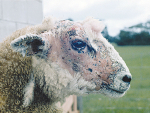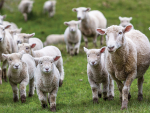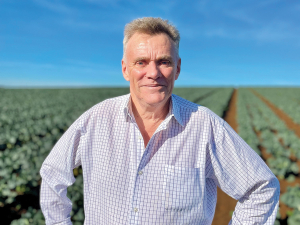The anticipated El Niño summer is expected to heighten the risk of facial eczema (FE) and SealesWinslow consultant Nutritionist Paul Sharp says getting a preventative plan ready now will help protect animal health and bottom lines.
Sharp says that while farmers are aware of the crucial role zinc plays in combating FE, their investment could be wasted if it’s not delivered in the right dose, at the right time, alongside other preventative measures. FE reportedly costs individual farmers more than $100,000 a year in lost milk production.
“Beyond immediate zinc costs, the hidden cost of incorrect timing and dosage can significantly impact farm profitability, not to mention the devastating effects on animal health,” says Sharp.
“Reduced milk production and weight loss in affected animals can be costly and compromise their welfare, which highlights the need for farmers to get a robust strategy in place now as summer arrives early in some areas.”
During El Niño events, New Zealand experiences warmer conditions with higher humidity towards the end of the year, which can create an environment conducive to the growth of the fungus Pithomyces chartarum. This fungus produces spores responsible for causing FE in livestock.
“The ideal conditions for FE spores to increase are when humidity is high and overnight temperatures are above 12 degrees Celsius for three consecutive nights, which is typically from December through to May. But we’ve already seen these conditions in some regions.
“It can take up to 3 weeks after the start of zinc treatment before enough reserves are built up in the cow’s liver for supplementation to be effective. So, start now! Do not get caught out with high spore counts and not enough zinc reserves built up by the cow.”
Sharp says effective mitigation begins with managing pasture quality, staying vigilant for signs of FE, and implementing a carefully designed zinc programme for your herd well in advance.
Good pasture management is crucial. Pasture with more dead matter in the base tends to have higher spore counts, as this helps to trap moisture and provides ideal growing conditions for the fungus.
Sharp notes that good pasture management can complement zinc supplementation in the control of FE.
“Carefully managed pre- and post-grazing helps reduce the toxicity of pasture as dead matter levels are low, minimising the potential for high spore counts.”
Many cows will not show external symptoms of FE, but rather suffer internal liver damage. Nevertheless, Paul encourages farmers to watch for initial signs there could be a FE problem.
“This includes reduced cow dry matter intake which leads to a drop in milk production and weight loss,” he says.
“Animals may also be irritated and seek shade due to photosensitivity. This can present as reddening and flaking skin on hairless areas and white skin areas exposed to the sun i.e. skin along the back, under front legs, udder, teats and around the eyes, ears, and nose.”
Sharp’s advice for farmers is to implement a zinc programme now zinc can be offered to animals in various ways. It can be dispensed in water, given in boluses, or mixed into feed.


















